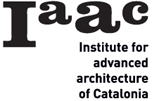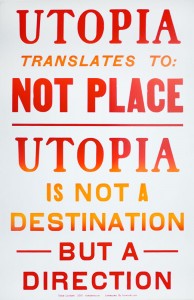“Utopia”
Courtesy of: http://uncopy.net/tag/utopiadystopia/
- Do you actually believe you can separate buildings out from the infrastructure of cities and mobility of transit and the expectations and incentives of people?
- Why do people tend to believe that what is financially profitable (for developers) is not actually equivalent to economically feasible (positive impacts on social welfare)?
- How would you show that this does not necessarily have to be like this (but rather the opposite)?
Clearly is currently necessary to create infrastructure solutions that help to satisfy different social purposes far apart from the buildings, but it is equally clear that there is an urgent need to generate architecture more aware of the present global situation.
As architects it is imminent to think in “green” and generate architecture that goes beyond than a lonely building and achieve merge with the environment, becoming environmentally responsible buildings that can realize a significant change and contribute to the achievement of a sustainable future and ensure this a way that future generations enjoy continued access to natural resources.The counterpart of this is that currently the private initiative investment intends to get the investment returns as shorter-term as possible, in addition to being these same investment naturally outside of the sustainability issues. The little innovation in “sustainable” projects and the lack of interest on the part of society, creates great uncertainty to large capital investors.
But is possible to merge both ends if you take into account environmental requirements and are solved by technological advances to face environmental degradation through innovative architecture and friendly with the environment.
That is why is necessary to carry out exhaustive economic analysis to study the possibilities of projects and thus to substantiate adequate justification for its realization, since investors generally focus their attention to the project, as long as the economic aspect is attractive and generate economic savings.
Likewise, if society accept the idea of designing “Sustainably”, the development of sustainable cities it could produce consistently and could transform cities into true detonators, combining architecture and sustainable reasoning would lead to obtain utopian results in political, social and cultural terms.
Therefore, I assume that the challenges for sustainable architecture are difficult but achievable.

